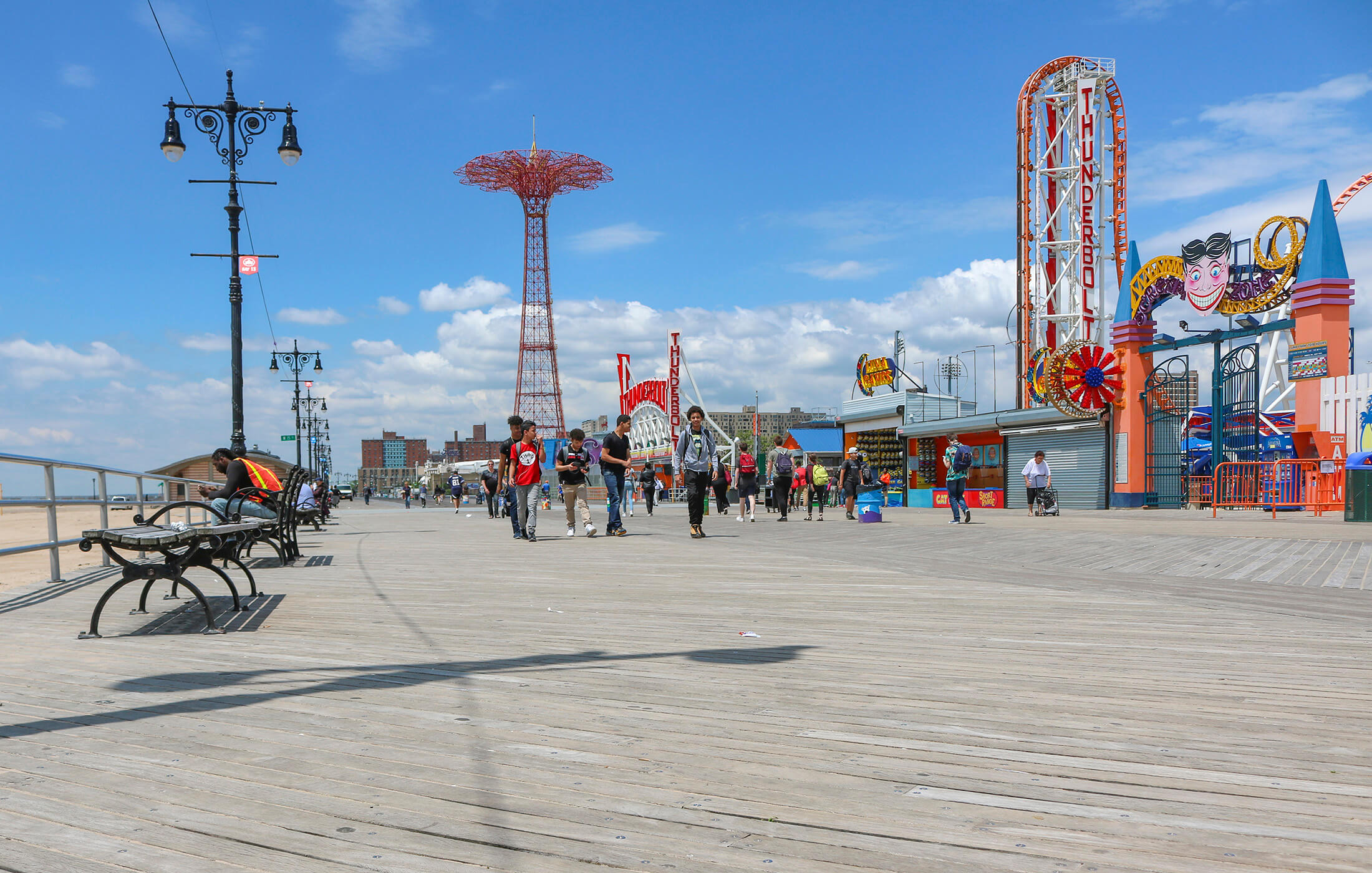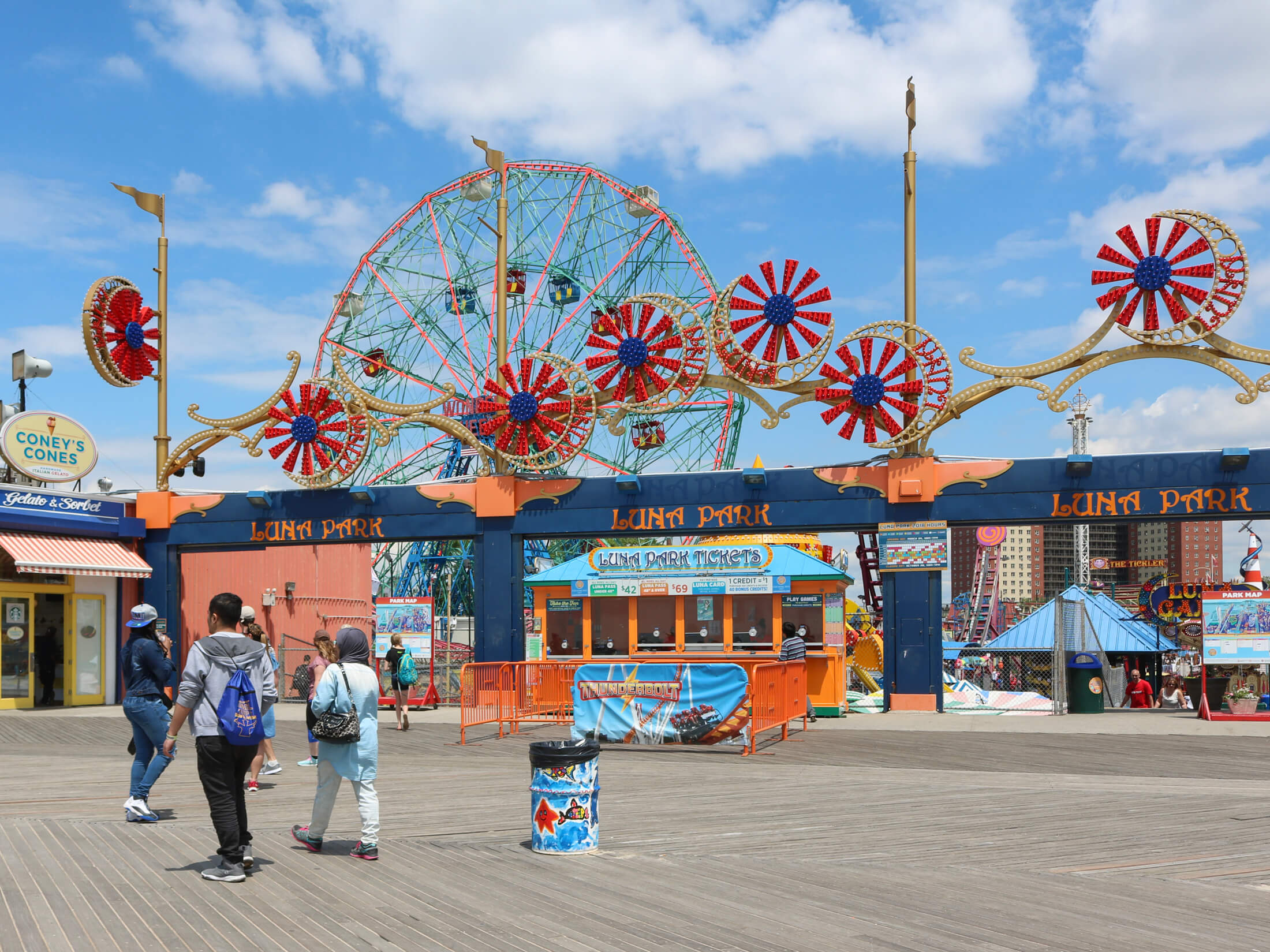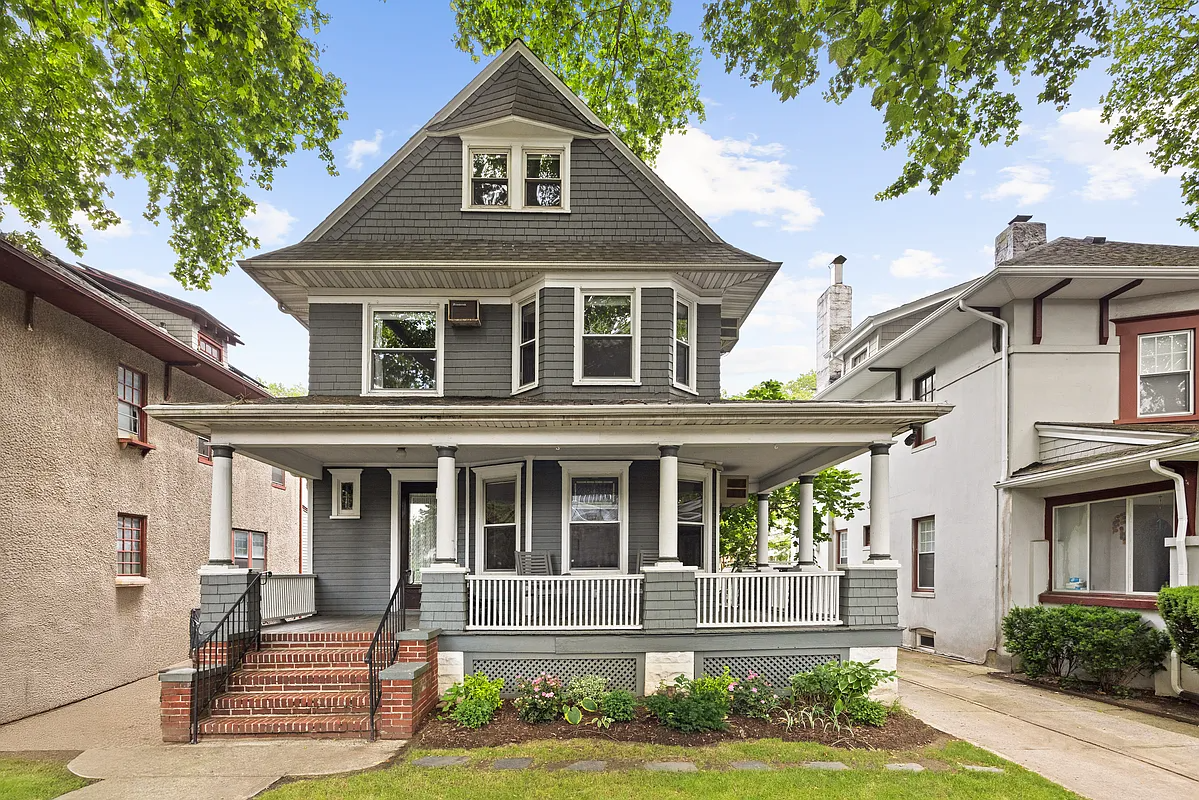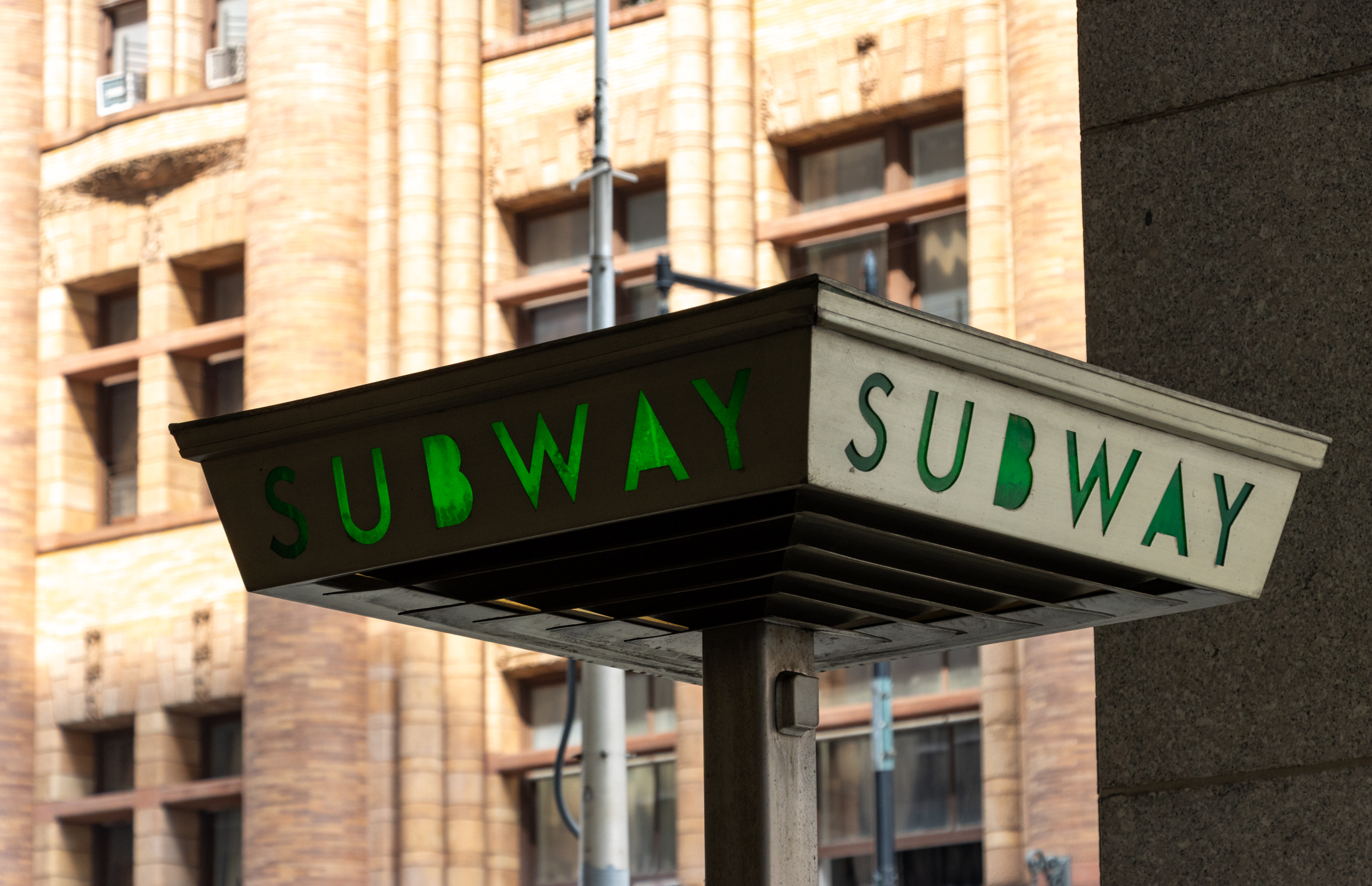Coney Island Pops Up as Possible Casino Location; Locals Are Not Amused
New York City developers are eyeing locations for a new Big Apple casino — and the People’s Playground is reportedly on the roulette table.

Coney Island, 2018. Photo by Susan De Vries
New York City developers are eyeing locations for a new Big Apple casino — and the People’s Playground is reportedly on the roulette table.
Coney Island business mogul John Catsimatidis recently shared his support for a Coney Island casino, the New York Post first reported, as did Thor Equities — the development company owned by Coney Island local Joe Sitt, who also owns a portion of the area’s amusement district.
Potential sites have come into question after Mayor Eric Adams announced earlier this year that he would like at least two of the state Gaming Commission’s three up-for-grabs casino licenses for the Downstate region to go to New York City, following Governor Kathy Hochul’s public support of the state gambling industry’s expansion.
“We would love to have two in New York City,” Hizzoner told reporters at the time. He later tweeted that downstate casinos can create “at least 16,000 good paying jobs, mostly for NYC residents,” according to the Gaming Commission.
Aside from Coney Island, city officials also have their sights set on Willets Point in Queens and Hudson Yards and Times Square in Manhattan, according to the Post. Though, it remains unclear just how many bids the Big Apple will get, with The Real Deal reporting that existing casinos in Yonkers and Queens are also tossing their hats in the ring to expand.
With new gambling dens up in the air, a number of Coney Islanders have since come out against the potential of a casino in their already crowded backyard, citing a lack of transportation services to support the new attraction and minimal benefits to the local community.
“The amusement area, as it is, sucks up resources like the vacuum cleaner,” said southern Brooklyn resident, environmental activist and longtime Coney Island resident Ida Sanoff. “Everybody else on the peninsula has become a stepchild to the amusement area.”

Sanoff said that adding a casino to the neighborhood will only further drain resources, such as police force, maintenance and program funding, from the rest of Coney Island. She also finds it hard to believe that high-rollers — specifically the large number of city seniors who take charter buses to and from casinos — will want to take the subway to the hypothetical gaming house.
Opening a casino will also exacerbate traffic in the neighborhood, Sanoff argued, as most people are going to drive there, further disrupting congestion caused by travelers to the amusement district in the summertime.
“The biggest problem is that the city thinks we are all going to be riding our bicycles and taking public transportation,” Sanoff said. “Subways are not accessible. A lot of the people who go to casinos are seniors, they can’t walk up subway stairs. Most of our subway stations throughout New York City are not accessible.”
Sanoff likened plans for a casino to the 2009 Coney Island rezoning, which promised a number of benefits to the community as part of the amusement district’s revitalization that never materialized, such as additional parking, an economic boost for neighborhood businesses resulting from Coney Island becoming a year-round attraction as well as essential retail convenient for Coney Islanders.
“From the 2009 rezoning, we learned the hard way. They promise you jobs, jobs, jobs and what you get is bupkis,” said Sanoff, urging decision makers not to again fall for developers’ promises. “You get a few construction jobs and maybe a few minimum wage [jobs] and the rest goes to the whole universe, they don’t try to hire in the community. So if you ask me the only thing this is going to bring us is aggravation.”
She drew a comparison to Atlantic City, New Jersey, arguing that casinos do not spur economic growth in the communities around them as they are designed to keep people inside its doors, spending money on food, shopping and entertainment.
“Look at Atlantic City, it has not brought in anything in the surrounding area, it has not brought in more businesses,” Sanoff said. “Casinos want you to stay in the casino. So you got your shopping, you got your bars, you got your restaurants, you got your entertainment, they don’t want you leaving the casino.”
Coney Island Council Member Ari Kagan echoed Sanoff, calling Atlantic City the perfect example of why not to build a casino on southern Brooklyn’s seaside.

“You want to see economic development, go to Atlantic City you will see so-called economic development,” he said, adding that a Coney Island casino would only send families further into struggle. “I’m totally against it because it creates much more problems than it will create jobs. Gambling problems, devastated families, poverty, suicide, crime and all kinds of social issues.”
Kagan suggested, instead, opening a free community center for locals, which would provide jobs and at the same time betterment for its community members — as opposed to the bad influence of a casino.
“Coney Island needs jobs, they need economic development. Coney Island needs the creation of a community center,” Kagan said. “I am talking to [the New York City Economic Development Corporation about transforming] the outdated Shore Theater, a 45-year abandoned building. We need a community center — not membership but a free, recreational community center for seniors to have something to do.”
The first-term council member, who succeeded his former boss Mark Treyger, said that in all his years in public service he has never heard a plea for a casino.
“In the last seven months [as council member] nobody told me, ‘Let’s bring a casino’ — not a single person,” Kagan said. “Everybody told me that they want a ferry, fix the boardwalk, we need a community center or another supermarket.”
No decisions will be made for a while as the formation of a sitting board is the next big step and needs to be completed by October 4, then the committee can put out a request for bids.
Catsimatidis and press representatives at Thor Equities did not respond to Brooklyn Paper’s requests for comment, but Catsimatidis — who developed the Ocean Drive waterfront residences along Coney’s oceanfront — told the Post a casino “would be a wonderful thing for Coney Island and Brooklyn.”
“A Coney Island casino would bring a lot of vigor to Brooklyn,” he told the outlet.
Editor’s note: A version of this story originally ran in Brooklyn Paper. Click here to see the original story.
Related Stories
- Busy Surf Avenue Intersection Gets Crosswalk, Stop Signs to Create Safe Pathway for Seniors
- Coney Island Creek Ferry Project on Pause While EDC Conducts Further Study on Viability
- New Murals Revealed as Part of Ongoing Effort to Transform Coney Island Streets
Email tips@brownstoner.com with further comments, questions or tips. Follow Brownstoner on Twitter and Instagram, and like us on Facebook.





What's Your Take? Leave a Comment